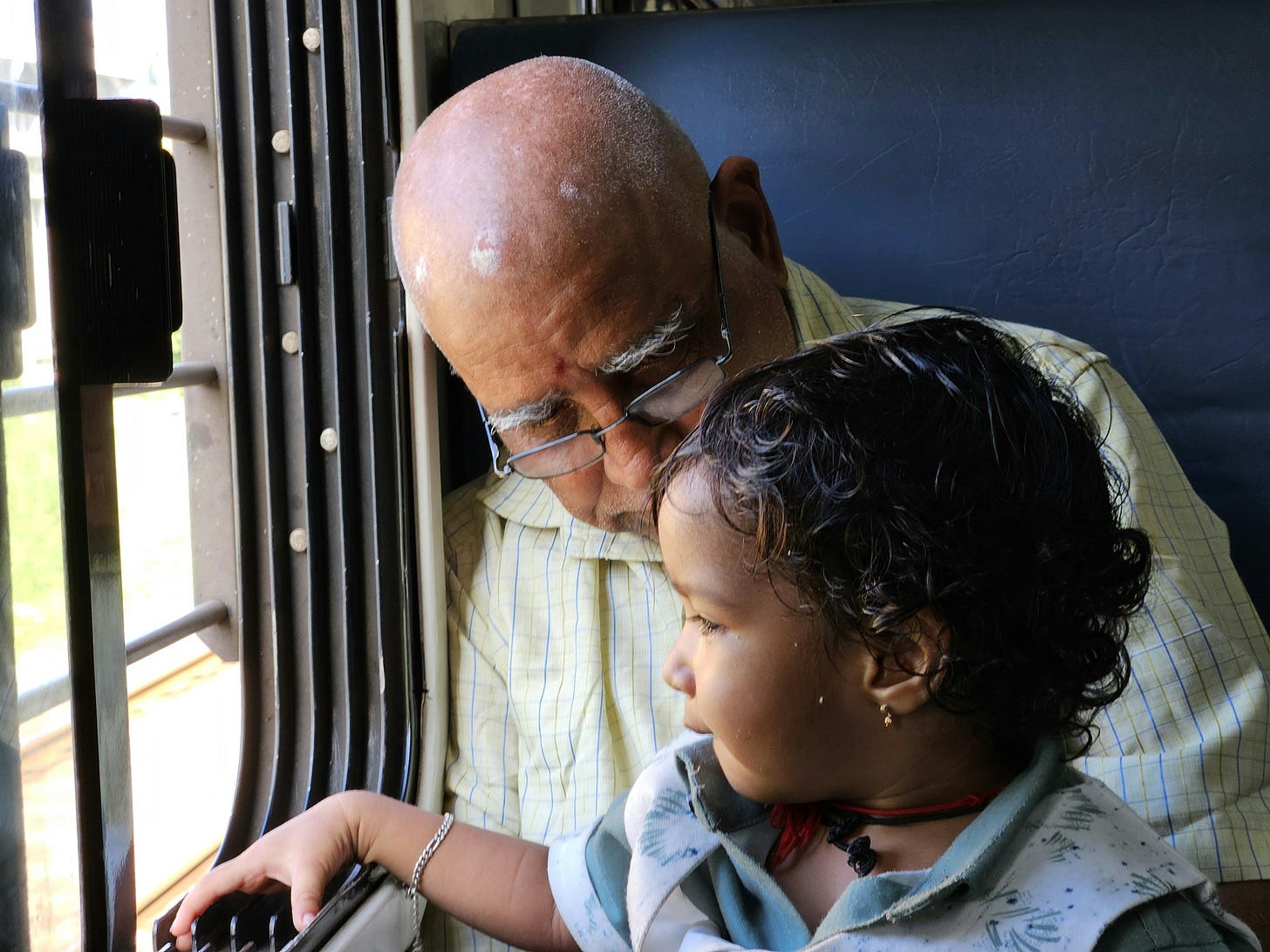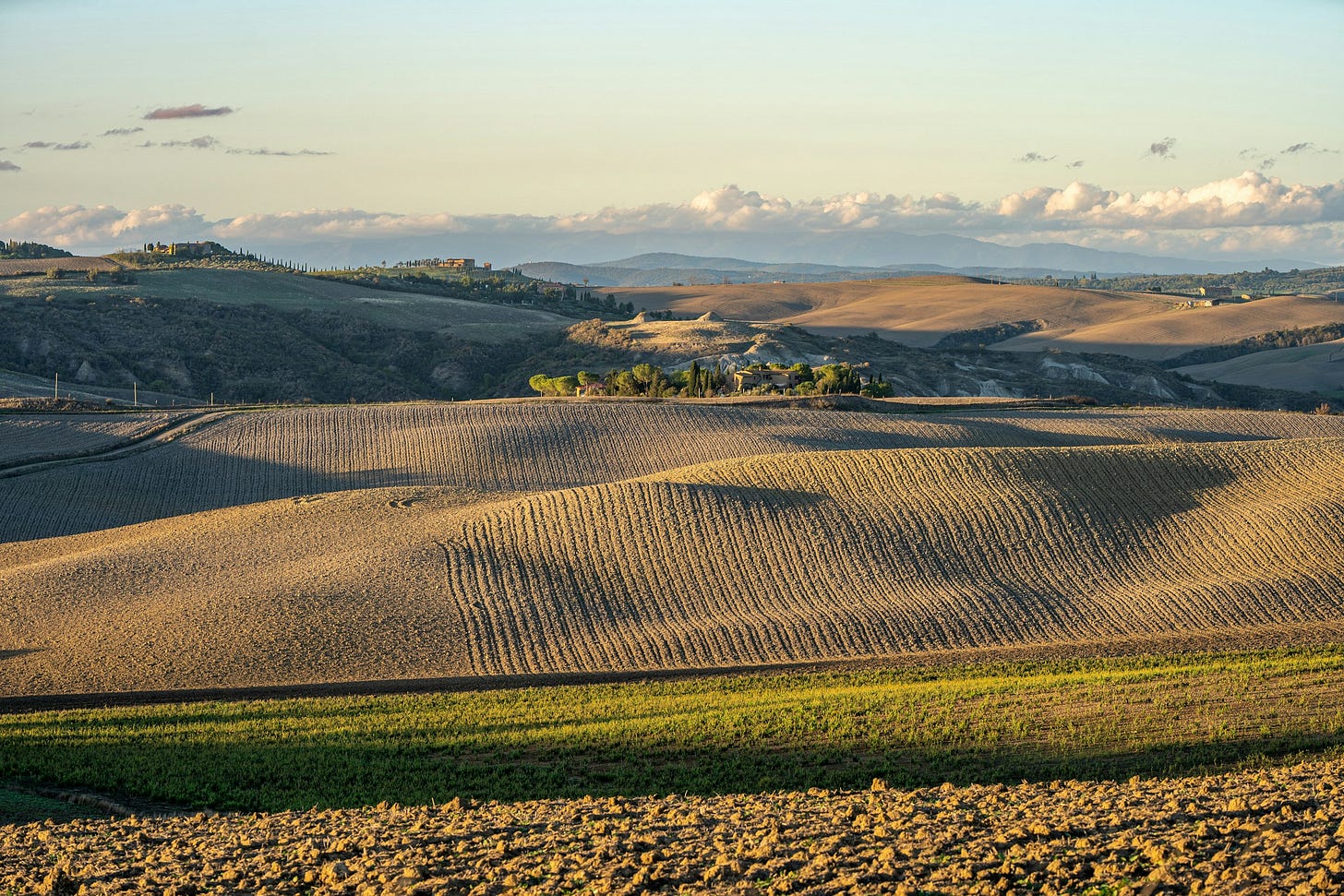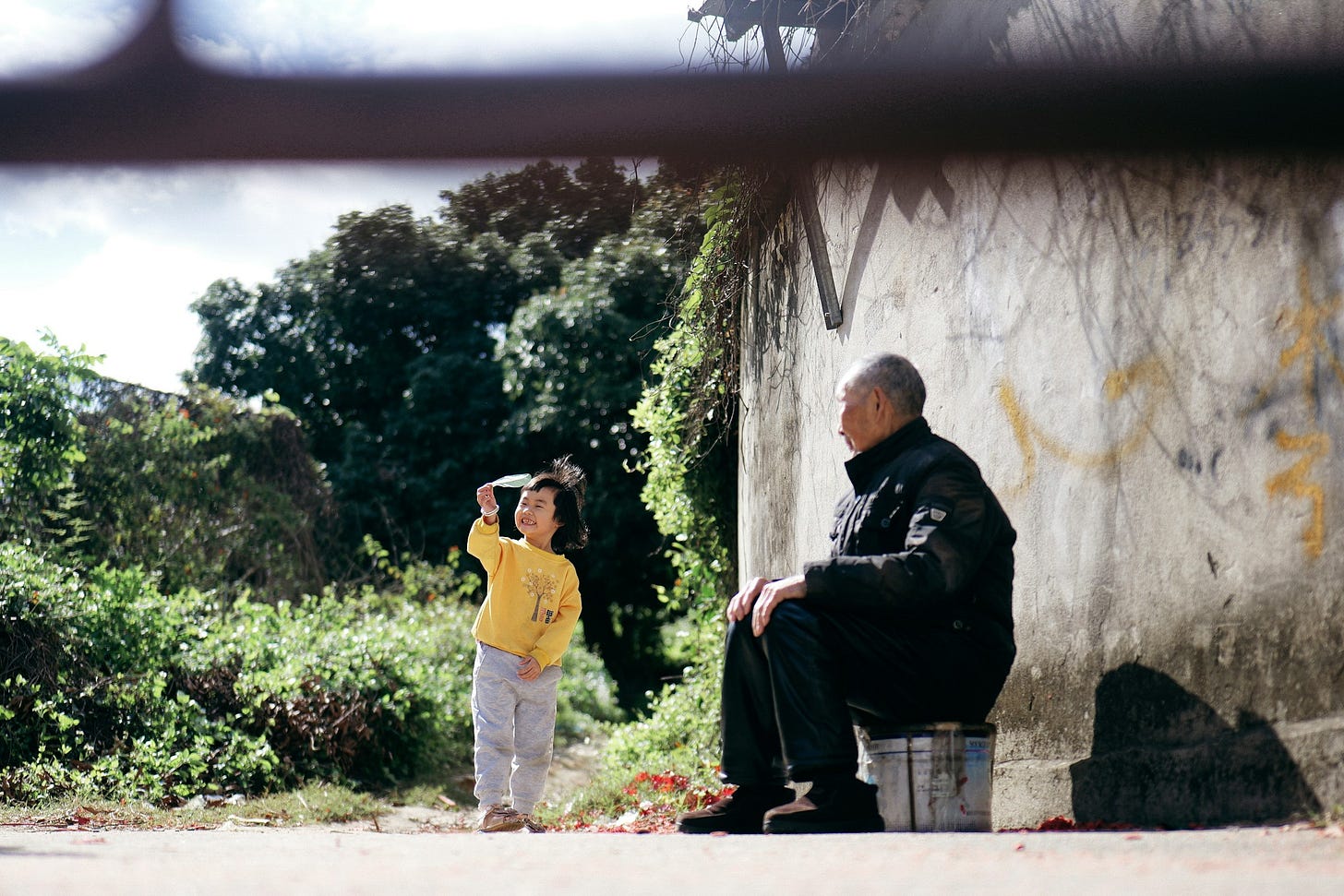Photo by Aditya Menon on Unsplash
Treasuring Our Elderly and Disabled, Part 1
Dear Seized Readers,
How’s life treating you and those you love during this season of birds and blooms?
While visiting Japan last spring, I witnessed a beautiful aspect of Japanese culture--the way elders are revered. Children and grandchildren bow before parents and grandparents. They actively listen to the wisdom and stories of their elders and readily provide necessary care. Older citizens are cherished in Japan.
This reverence for elders is often lacking in the states. Our advertising and media glorify youth. Elders feel invisible, overlooked. With Medicaid services now on the chopping block, we must recognize that old age will befall each of us, and disability could come along too.
For a number of years, I worked as a personal caregiver for elderly and disabled friends within my community. The wisdom of two clients in particular, Bern and Jenny, grew my maturity and sense of perspective. Spending days with Bern and Jenny became a gift for me--I was gifted by their accumulated wisdom. I emphasize their care because as much as I cared for their needs, I received more in return as they shared their life experiences. If I am a better person today, it is largely due to elderly friends and family members.
What elders have influenced your life? In what ways?
My poem, “Story Reaper,” introduces you to my friend, Bern Wright.
Photo by Milina Padia on Unsplash
Story Reaper in memory of Bern At 7 a.m. / you call my name./ I retrieve fresh pants,/ grab a hung tee,/ dress and wheel you past/ a tiny photo—/ your wife of sixty years—/ to breakfast/ in a cracker barrel kitchen. Large arthritic fingers/ loosely grapple/ fork and knife/ as you pulse the grain/ of a rural childhood,/ rake memories/ into windrows/ of earth-turned stories. I’m gripping the hay-barn/ doorframe with you,/ Rankin Road farm-boy,/ swinging back/ to a Depression-era farm/ as you trap and skin hares/ with a lettuce-rigged rabbit gum,/ then curse the masticating mule/ chewing your popcorn/ carefully planted/ to earn a Huffy bike.
Photo by Kamal Hossain on Unsplash
Your mouth,/ a fault line, quivers/ when you speak of Lib’s last year:/ carrying her/ to the toilet, dragging/ a comb through chestnut hair. With your oversized hand in mine,/ I listen to the clock strike/ back to my childhood:/ My dad catches me/ as I leap into his arms,/ then vanishes,/ felled by a weak heart.
Photo by Jabari Timothy on Unsplash
I want to be your daughter,/ to cradle your stories/ and lonely desires/ as through the quiet house/ they wander/ searching/ for an echo of home. -Diana Ewell Engel
Poetry Illuminates Our Common Humanity
Poetry, like all the arts, tells the human story. Often more intensely than works of prose, visual arts, or dance, poetry--like music--strikes us emotionally where we live. Our hearts expand; we feel our empathy deepen. This is one of my goals when I write a poem. Hopefully, “Story Reaper” accomplishes this mission.
I remember my years working as one of Bern’s weekly caregivers. I would drive to northeastern Greensboro as the sun rose. Bernard Wright’s cream-carpeted ranch house breathed comfort and family. In his living room, a large multi-picture frame hung on the dark paneled wall. Bern and Libby, his wife of 60 years, posed at its center, with grown children and grandchildren radiating outward in gold bordered photos.
Photo by Peter Thomas on Unsplash
During his waning days, Bern lived in his wheelchair. Despite how trying and confined his life had become, his spirit was generous, kind, and gentle. When he told stories, it was magical: My imagination was transported into his boyhood spent on a farm—This is what I mean in these third stanza lines: I’m gripping the hay-barn doorframe / with you, Rankin Road farm-boy, / swinging back to a Depression-era farm … “ My imagination swung from the haybarn into fields of his family farm!
To retell his stories in an authentic and vivid manner, I chose farm imagery and language: pulse the grain, rural, rake, windrows, earth-turned stories, rabbit gum. The fertile earth becomes the metaphor for Bern’s memories and stories.
When you write a poem, consider your content as you choose your words. Just as different disciplines have unique terminologies, you can find words unique to your subject to bring your poem to life for your reader.
Photo by Gabriella Clare Marino on Unsplash
The last three stanzas are the heart of my poem and pose a strong argument for giving our seniors and those who are disabled the care that they need and deserve. Bern tenderly cared for his ailing wife, Lib. He deserved the same level of care. However, whether Lib was part of his life is beside the point: His quality-of-life mattered. As he talked about his wife, he became emotional. I compare his quivering lips to a fault line on the verge of breaking open his grief.
Notice the turn in the penultimate stanza: Because I’ve already introduced the motif of imaginary time travel back to Bern’s boyhood days, I bring it into play again and take the reader back to my childhood. My father died of a massive heart attack at the age of 45. As I listen to Bern’s ticking kitchen clock, I remember how I would jump into my dad’s arms when he would walk through the door at the end of his long workday.
Photo by King Dekor on Unsplash
If you introduce a literary motif into your writing, you may be able to use it again in your poem or prose piece. Look for opportunities. This kind of repetition can add emphasis and deepen your meaning for the reader.
My poem ends with a surprising realization as I feel Bern’s loneliness. I wish to be his daughter. I want to cherish his stories the way I would cradle an infant, with tenderness.
Ultimately, we write to learn about ourselves and the world we live in. Writing leads us to surprising revelations. That is the greatest reward of the craft.
Share your questions and impressions of “Story Reaper.”
Photo by Frank Ching on Unsplash












Your poem is beautiful, it made me tear up.
Beautiful, Di! Rich and sad. The image of holding his oversized hand really hit me. I could feel my grand dad’s and father’s hands which I held at the end of their lives. Bringing your own personal story of your dad made the poem even richer. It touched me. I have always been a lover of old folks, friends and family.